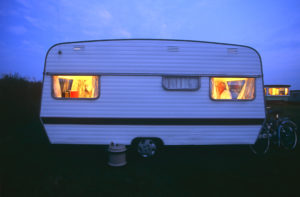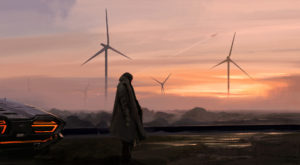One of my informal metrics for political cut-through in our synapse-frazzled age is “could you play this sentence over a bass drop and have the crowd go wild?”.
The last time a British politician managed this was early in 2020, when Kritikal Mass remixed Boris Johnson. And while obviously this metric doesn’t tell you anything very scientific about policy, or even a speaker’s relationship to truth or sanity, the fact that it’s impossible to imagine either Keir Starmer or Rishi Sunak saying anything you could sample tells you something about their political style.
I’m being a bit frivolous, but it’s a serious point. Though there are plenty of situations where what’s needed from politicos is competence, today the “Share” button can propel a new mood at warp speed through millions, in minutes. Sometimes, what matters in politics isn’t policy (or even making sense) but the knack that makes a good DJ: the power to channel a vibe.
On that metric, however dubious his track record is of actually delivering, Donald Trump is box office. Love him or hate him, it’s hard to think of another politician who has contributed so bigly to internet memes — or, relatedly, shown such eerie ability to tap into undeclared layers of collective longing.
And for that reason alone, Trump’s latest campaign video deserves attention, even among those not directly affected by American electoral politics. For where his 2016 campaign led on nostalgia (“Make America Great Again”) and a sense of being under siege (“Build The Wall”), now we find the Orange Man is a sunny delight, whose vision is a futuristic one of expansion and excitement, all powered by innovation.
Under Trump, we hear, America will “reopen the frontier”, giving “hard working families” a shot at “home ownership and in fact the American Dream”. He’ll do this, he says, by building “Freedom Cities” on federal land, and turning “forgotten communities” into “hives of industry” via a “strategic national manufacturing initiative” that will make all the stuff they’re no longer going to import from China. Cars will be less expensive. Public spaces will be clean, abundant and safe. There’ll be baby bonuses, flying cars, monuments to American achievement, and new, affordable homes.
Never mind how attainable any part of this vision is. Just depicting it is a bass drop moment: “And they’ll be beautiful homes.” And with this triumphal note of optimism (or if you prefer, salesmanship) Trump has staked is place on one side of a growing tension in the contemporary Right. Namely: where should conservatives stand on technology?
By and large, especially since the pandemic, the populist Right has been in a defensive crouch where tech innovation is concerned. And even if fears are often expressed in conspiratorial terms, this defensiveness may not be wholly unfounded when “technology” conjures up vaccine passports, social credit systems, lab-grown Frankenfoods, and the WEF trying to persuade us to own nothing and eat insects even as Bill Gates hoovers up farmland, and Guardian leftists champion “rewilding”.
Framed in (slightly) less baroque terms, many more on the Right denounce what Emmet Penney called “the revolt of the green elites”: that is, a high-tech version of the future imposed from the top down, in the name of climate change, that is now palpably asset-stripping the conservative petit bourgeoisie. And it’s striking, too, that a critique of high-tech processed food, once the preserve of Left-wing hippies, is now more commonly heard on the Right.
Nor is it just the Right expressing reservations. The climate activist Dougald Hine took aim at the “ecomodernist” consensus in his recent book, arguing that this will form “the political orthodoxy of the 2020s”, from “Silicon Valley visionaries and Wall Street investors, through a broad swathe of liberal opinion, to the wilder fringes”. This worldview aims to deploy every possible technological means at our disposal at “sustaining a version of existing trajectories of technological progress, economic growth and development”, along lines that he fears are growing increasingly authoritarian — but that will ultimately, be “a fast track to nowhere”.
I share Hine’s pessimism about our long-term capacity to defy gravity by shooting for infinite growth on a finite planet. But what if I’m wrong? What if it doesn’t have to be like this? Certainly it’s always easier to offer a critique than a positive vision. The Trumpian version of tech-optimism, though, is just this — for all that it declines to pay any attention to (you might think) important matters such as resource scarcity, emissions or pollution.
Look, the vision says: we don’t have to turn our backs on innovation and become hill farmers in order to evade the pod and the bugs. Instead we can lean in to the power of technology to deliver a better future. It’s an intoxicating promise — and it taps into other green shoots of Right-wing (or at least, definitely not progressive) tech optimism on both sides of the Atlantic.
Aris Roussinos has argued for halting British decline with “Anglofuturism”: a vision of clean skies, revived manufacturing, thriving small towns each with their own small modular reactor, linked by high-speed rail. It’s a popular aesthetic among a section of the very online Right, that leans heavily on airships, sci-fi aesthetics and (for some reason) Peter Hitchens. In the US, meanwhile, we find (among others) assorted Right-libertarian advocates for upgrading the human organism, while others propose seceding from liberal hegemony by creating “Network States” linked not by geography but affinity — and still others herald a return to noble aspiration by reviving the dream of colonising Mars, or perhaps fusing human intelligence and technology with the natural order in Promethean “garden empires”.
Against some of these, Trump’s proposal to pour R&D money into flying cars seems positively mundane. Needless to say, though, even before we get to the practical workability of his proposals, I have some questions — as might the conservative American philosopher Russell T. Kirk. Back in 1962, Kirk famously captured the anti-conservative nature of tech itself, when he described the automobile as a “mechanical Jacobin”, referencing the revolutionaries who sought to tear France down after 1789 and build a new civilisation from the rubble.
The car is, Kirk argued, “a revolutionary all the more powerful for being insensate”; one that “tears the old order apart”. And much has been written in the ensuing six decades, about the changes wrought by mass car ownership across every facet of society, from shopping behaviour, social patterns, urban sprawl or indeed children’s activity levels, for example, to say nothing of carbon emissions.
And this goes far more broadly than just cars. As Jon Askonas argued recently, there’s little point in saying you’re a conservative and all for “tradition”, if you’re also gung-ho about the forward march of technology. For as Marx pointed out some time ago, a society focused on tech innovation is one in which every tradition is subject to permanent revolution.
Transformative technologies, such as the private car, “disrupt the connections between institutions, practices, virtues, and rewards”, and in the process “render traditions purposeless, destroy the distinction between virtuous and vicious behaviour, make customary ways of life obsolete, or render their rewards meaningless or paltry”. Askonas cites nitrogen fertiliser, an innovation that, at a stroke, rendered centuries of settled agricultural practice obsolete — and, with them, the social forms, cultural habits, legal norms and even landscapes these practices had nurtured.
But we might just as well point to the car. Such disruptive innovations sit uncomfortably with a desire to conserve the best of our past and heritage. Mass social changes sweep us all along, even die-hard holdouts: even those who prefer a more slow-moving car-free way of life will be forced to adapt, when there’s no one left to share that way of life with.
And given Trump’s intuitive direct line to the American populist political id, we should view his pivot to tech optimism as highly significant. Even critics such as Askonas of the Right-wing blind spot on technology’s revolutionary principle don’t see this as a reason to try and stuff the genie back into its box — but rather, to be more intentional about the values that underpin the way we use it. And after all, there’s no obvious reason why the creative destruction of tech innovation should necessarily be ordered to progressive values. The currently dominant progressive tech-optimists imagine green abundance plus social justice; for Trump, the same tech should deliver beautiful buildings, firm policing, cheap cars and more American babies.
In both cases, pursuing the good implies — as Trump puts it — “reopening the frontier”: that is, a restless onward search for new discoveries, new resources and new innovations. And even if, for those on the Right, permanent revolution may feel less congenial than it does for progressives, whether or not it feels like a wise course to follow perhaps depends on whether you think there’s anything left to conserve.
For the great many (including Askonas) to whom the answer to this question is “not a lot”, the creative destruction of tech innovation may genuinely seem like a more fruitful option than sitting about in the ruins muttering about Chesterton’s fence. For this corner of the Right, the question is less what remains to conserve than what we should aspire to build.
In practice, at least with The Donald at the helm, that’ll probably look something like Reaganism with a side order of Jetsons. Perhaps, as Trump suggests, the power of tech really can be reclaimed by conservatives, in service to familiar themes from American conservative tradition such as individual aspiration and family life — and perhaps that really will be different from the Great Reset pod/bugs proposal. And perhaps this time innovation will actually deliver, without in the process further undermining the social order it seeks to enhance. And perhaps this can all happen without running out of ecological road.
I hope my pessimism is unwarranted and this turns out to be true. In any case, where it comes to setting the crowd alight, these such visions have far greater potential than any amount of tweedy stuff about localism. So whether it’s the WEF version or the techno-Trumpist one, this is probably the future we’ll get — at least for now.
Disclaimer
Some of the posts we share are controversial and we do not necessarily agree with them in the whole extend. Sometimes we agree with the content or part of it but we do not agree with the narration or language. Nevertheless we find them somehow interesting, valuable and/or informative or we share them, because we strongly believe in freedom of speech, free press and journalism. We strongly encourage you to have a critical approach to all the content, do your own research and analysis to build your own opinion.
We would be glad to have your feedback.
Source: UnHerd Read the original article here: https://unherd.com/





